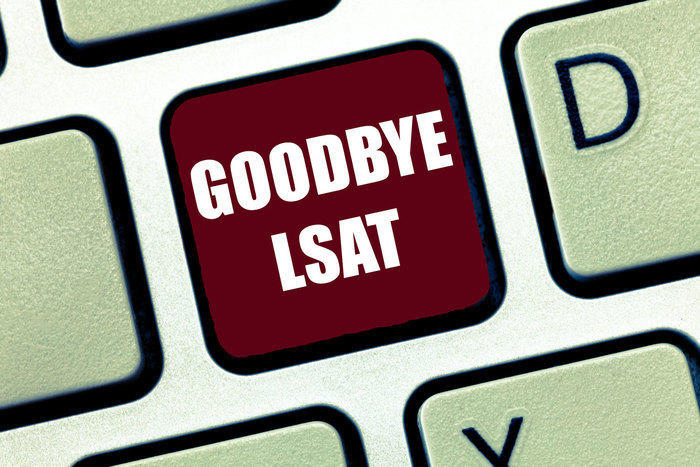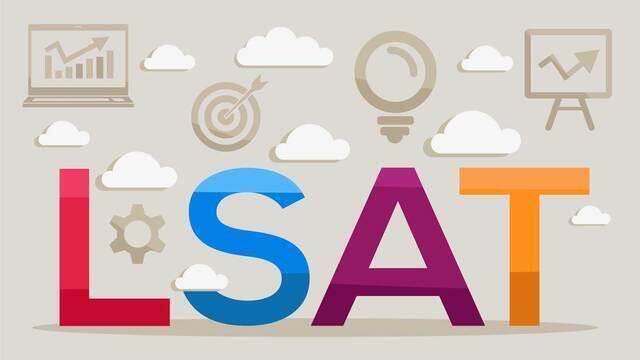If you believe some of the recent headlines, the ABA delivered a death blow to the LSAT last week. Let’s unpack what actually happened.
“Law School Accrediting Panel Votes to Make LSAT Optional.”
“American Bar Association panel votes to drop LSAT.”
“LSAT’s [sic] Are [sic] Out as American Bar Association Chases Diversity.”
If you happened upon some of these headlines over the last few days, you may have — understandably! — concluded that the LSAT is going away. That the ABA exacted a fatal blow to the LSAT and initiated a new, standardized-test-less reality for law school admissions.
If you plan on applying to law school admissions, and your similarly law-school-bound friends kvetch about how difficult the LSAT is, this might even register as good news! News too good to risk jeopardizing by reading past the headlines in any of the above articles. (Or to give much credence to a more nuanced headline from Reuters.)
However, the reality is a little more complicated than the above headlines let on. Last week was notable, to be sure. The ABA’s Council of the Section of Legal Education and Admissions to the Bar voted to remove Standard 503, the rule that requires that law schools use a “valid and reliable admissions test” in their admissions process.
For a long time, Standard 503 enshrined the LSAT as the one true “valid and reliable admissions test.” Eventually, the ABA affixed an addendum that permitted alternative tests, like the GRE.
So, essentially, the ABA Council voted to make standardized tests optional for law schools’ admissions processes. However, this vote isn’t the final death knell for the LSAT. The ABA’s House of Delegates will vote on the Council’s proposed change in February 2023. If the House votes to nix Standard 503, the standardized-test requirement won’t go away until 2025.
So, the LSAT isn’t definitely going away, and it’s definitely not going away until 2025.
(It feels weird to have this discussion without bringing up the most cited reason why the Council voted to remove Standard 503. Consider this awkward insertion our attempt to include this discussion. Opponents of Standard 503 have long argued that the standardized-test requirement makes it more difficult for people from communities underrepresented in the legal field to enter the field and thus hampers diversity in law schools and the legal profession. They aren’t making this up — a 2020 study from NYU also reached this conclusion. Standard 503 defenders say there isn’t enough evidence about what could happen without the standardized-test requirement and that its removal might instead exacerbate diversity issues in the legal community. They aren’t making that up, either — the LSAT was crafted to make the legal field more accessible to some communities.)
The LSAT has faced this exact scenario before. Back in 2018, the same Council voted to remove Standard 503. Before the House of Delegates had a chance to ratify that proposal, the Council withdrew the proposal — keeping Standard 503 in effect.
Perhaps history will repeat itself, and this proposal will once again be withdrawn. Alternatively, most Delegates could vote against the proposal, keeping Standard 503 as is.
But it may be worth teasing out what might happen if the House of Delegates removes Standard 503. We are now entering the Speculation Zone, but let’s look at recent history and law school officials’ statements to talk through what could happen if the LSAT becomes optional in 2025.
1. The LSAT Becomes Optional in Name Only
There are many quote-unquote, wink wink, “optional” parts of a law school application. Most law schools require two letters of recommendation and give applicants the option to include a third. It would be a little foolish not to take law schools up on the offer to provide the third letter of rec.
Law schools provide applicants with the option to address weaknesses in their application in an explanatory essay. Any applicant with an explainable shortcoming probably should write such an essay.
Diversity statements are also optional. But why wouldn’t an applicant with the traits or experiences that could contribute to a law school’s diversity write such an essay?
Every applicant wants to submit the best application possible, so applicants tend to complete the extra-credit “optional” parts of the application. If the LSAT becomes optional, it could just become a steroidal version of the third letter of recommendation. Yes, it’s “optional,” but opting against taking the LSAT (or another accepted standardized test) would only put you at a competitive disadvantage.
For what it’s worth, I suspect this is the most likely outcome in this saga. Many law school deans have signed multipleletters objecting to the ABA’s plans to remove or revise Standard 503. A recent survey found that only 2% of the sampled law schools would definitely make the LSAT optional should Standard 503 go away.
What would you do if the LSAT was optional at only one or two of the law schools you were applying to? You would have to take the LSAT to apply to the schools that continued to require it. And if you already had the LSAT score, wouldn’t you include it on the LSAT-optional applications — just as you would a third letter of rec, an explanatory essay, or a diversity statement?
So, one possible outcome is that the status quo is mostly maintained. Many law schools may continue to require the LSAT or other standardized test scores. And the ones that do not may find that most applications they receive still include an LSAT score.
2. The LSAT Is Optional … For a Few People
I find it hard not to think about the GRE when considering this saga. The fumes of this discussion are hitting my olfactory bulb, evoking vivid memories of the GRE debate a few years ago. At that time, many law schools began accepting the GRE, citing many of the same considerations Standard 503 opponents now cite.
It seemed like the entrance of the GRE into the law school admissions field would have dramatic repercussions. But the actual result was … same as it ever was. The LSAT stayed the dominant test. By 2020, most of the top law schools were accepting the GRE, but the number of LSAT takers still went up 35%. (Granted, the pandemic certainly played a role there.) As it turned out, law schools that accept GRE only admit a few candidates with GRE scores each application cycle.
A similar policy might emerge after 2025 if the ABA removes Standard 503. Law schools might dedicate a few seats of each incoming class to candidates who apply without standardized test scores. Maybe some applicants with stellar GPAs and inspiring or impressive experiences are admitted to top law schools without these scores.
(The darkest-timeline version of this would be law schools using these spots to admit the children of big donors and notable alums who get to avoid taking the LSAT altogether, but I don’t think that outcome is terribly likely.)
But law schools might continue to reserve most seats to applicants with standardized test scores. Maybe these standardized test scores become a slightly less significant part of admissions boards’ calculus, but they remain an important consideration for most applicants. So, the application picture changes significantly for some and marginally for most.
3. This Augurs Major Changes to Law School Admissions
It’s also possible this removal of Standard 503 initiates significant changes to law school admissions. After all, removing this requirement would allow law schools to craft their own admissions policies. Instead of the LSAT being the most heavily-weighted factor at every law school, different law schools will begin valuing different application components.
Maybe some law schools will continue to prize LSAT scores. But other law schools will prioritize GPA, while others emphasize the importance of education and work experience.
This would make navigating the application process a little more confusing, but it would also introduce an element of strategy. Applicants could gain a competitive advantage by applying to schools that value the traits they bring to the table. For those of us that help these applicants, LSAT prep might become slightly less important while admissions consulting becomes a more impactful service.
Should this occur, things will get very interesting. We’ll start seeing comparative data about what traits are most correlated with law school and bar success. Suppose that law schools that emphasize education and work experience see their students’ GPA and bar passage rates increase substantially while those rates stagnate or even decrease at schools that prioritize GPA or standardized test scores. Suppose these results are consistent and sustained through several years. That would send a strong message to other law schools. It might even convince them that they should emphasize education and work experience in their admissions.
Once we gather that data, we might start seeing industry-wide changes to admissions policies.
But we’re now conjecturing too much even for these deep recesses of the Speculation Zone. Let’s ground our feet back onto reality’s soil and remind ourselves that nothing has changed yet. And that if you plan on applying to law school between now and 2025, you should definitely try to earn the best LSAT score that you can.







